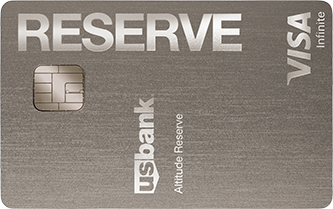- myFICO® Forums
- This 'n' That
- SmorgasBoard
- Re: AMEX Rant
- Subscribe to RSS Feed
- Mark Topic as New
- Mark Topic as Read
- Float this Topic for Current User
- Bookmark
- Subscribe
- Mute
- Printer Friendly Page
AMEX Rant
Is your credit card giving you the perks you want?
Browse credit cards from a variety of issuers to see if there's a better card for you.
- Mark as New
- Bookmark
- Subscribe
- Mute
- Subscribe to RSS Feed
- Permalink
- Report Inappropriate Content
AMEX Rant
So, I just discovered my new health care insurance carrier doesn't take AMEX. I kind of was counting on some of that spend to put thru for some MR points next year. This makes two companies I do a lot of business that don't take AMEX. Hopefully, this is a helpful reminder to check before deciding on a provider if you're in the AMEX system.
Cheers!









EQ - 809 / TU - 817 / EX - 817
- Mark as New
- Bookmark
- Subscribe
- Mute
- Subscribe to RSS Feed
- Permalink
- Report Inappropriate Content
Re: AMEX Rant
Yeah, I'm not gonna choose my healthcare provider based on who they accept for payment.


- Mark as New
- Bookmark
- Subscribe
- Mute
- Subscribe to RSS Feed
- Permalink
- Report Inappropriate Content
Re: AMEX Rant
I'm somewhat envious of anyone who can pay health care premiums with a credit card; although since I'm unable to itemize them and they're part of a cafeteria plan anyway, I think the tax advantage probably far outweighs the credit card rewards in my case.
But I think you have more of a merchant and processor rant than an Amex one. Amex certainly doesn't disallow insurance payments, but merchants can opt out of accepting American Express because "everyone knows that Amex cards are significantly more expensive to accept." This is more or less a self-perpetuating myth due to historical small business acceptance and credit card merchant processors toting the line to squeeze every penny from their merchants.
See, historically if you wanted to accept American Express cards you would need to negotiate rates directly with American Express (Discover was also like this in the not-so-distant past). New and small businesses were disadvantage in two ways here: they didn't really have any negotiating leverage, and in order to pass those transactions on to Amex the merchant's regular merchant processor would often charge a premium for doing so (typically $0.25 - $1.00 per transaction).
Smaller merchants processing less than $1 million through Amex annually became eligible for a program launched in 2014 called OptBlue, where your normal credit card processor processes Amex cards themselves rather than forwarding them along to Amex and rates are based on a rate grid depending on merchant classification and the rate is determined by the amount of the transaction (which varies by industry). Those fees are very competitive with mid-tier Visa and MasterCard personal domestic credit card rates. However, now we go back to that self-perpetuating myth: the merchant processors still push that "everyone knows Amex is more expensive" myth and for example if they are charging a merchant Interchange plus 20 basis points and $0.05 per transaction (these last two are the primary source of profit for a merchant processor) for Visa and MasterCard, they will often tell the merchant they will process Amex cards at 40 basis points and $0.10 because (say it with me) "everyone knows that Amex cards are significantly more expensive to accept." It doesn't cost the processor any more or less to run that Amex Centurion card than it does for them to run a no-frills no-rewards Visa card from your credit union, that's just their markup. So using those rates I just mentioned for a $10 hamburger, the processor would make 7 cents from a Visa or 14 cents for Amex even though that's just their markup - now if the burger joint sells 100 Amex burgers a day then the merchant processor just scored an extra $2,555 a year of pure profit by overcharging the restaurant because "everyone knows that Amex cards are significantly more expensive to accept." For a $1000 insurance payment that works out to $2.05 and $4.10 on top of the actual card rates.
FWIW I oversee a number of merchant accounts and our cost for Amex due to volume is actually a bit less than most Visa and MasterCard transactions, and substantially less than say a high rewards tier business MasterCard. Amex cardholders are well-documented to have higher levels of average transactions at the same merchant; merchants who don't accept them (which is thankfully becoming fewer) are typically just harming the bottom line by not accepting the cards and many who do accept them are harming it by not educating themselves better on how the card payment industry works.